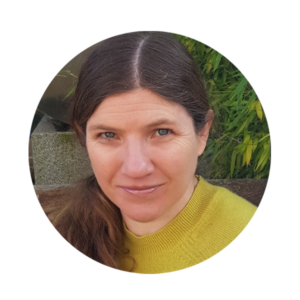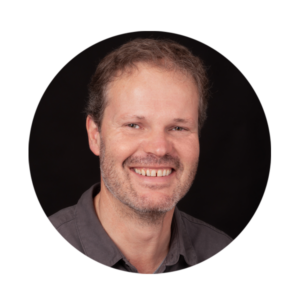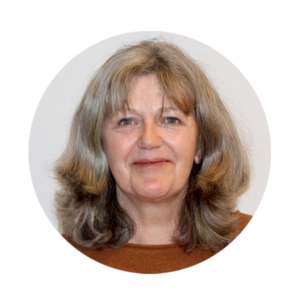The object of the seminars is that given the introduction of Mandatory Reporting it is likely that there will be increasing numbers of sexually abused children and young people identified. The seminars/webinars will inform colleagues across child and adolescent mental health services about the changing face of sexual abuse, e.g. the recent epidemiological findings by Professor David Finkelhor (Director of Crimes against Children Research Center, Co-Director of the Family Research Laboratory, Professor of Sociology, and University Professor, at the University of New Hampshire) who demonstrated that the addition of the online abuse to the generic questions about child sexual abuse raised the overall prevalence rate from 13.5 % to 21.7 %. The largest independent contribution to the overall combined increase were the offenses involving non- consensual image sharing and voluntary online sexual interactions with an impermissibly older adult partner.
The seminars will present current approaches to working with children and young people who have been sexually abused and those responsible for sexually harmful behaviour, and approaches to prevention.
Booking
The price below is for all four sessions. Sign up at this link or on the Book Now button at the top of the screen, and complete the form that follows. You’ll then receive an email confirmation and a link to the webinar, plus we’ll send you a calendar reminder nearer the time. Delegates will have exclusive access to recordings for 90 days after the event, together with slides. Plus you will get a personalised CPD certificate via email.
- ACAMH Members MUST login to book onto the webinar in order to access this webinar and get a CPD certificate
- Non-members this is a great time to join ACAMH, take a look at what we have to offer, and make the saving on these sessions
£40 ACAMH Members
£60 Non Members Join now and save
£5 Undergraduate / Postgraduate Members
FREE for ACAMH Low and Middle Income Countries Members
Don’t forget as a charity any surplus made is reinvested back as we work to our vision of ‘Sharing best evidence, improving practice’, and our mission to ‘Improve the mental health and wellbeing of young people aged 0-25’.
About the sessions
Sexual abuse across services – Thursday 12 September
Messages from the SWAAY Community and Residential services on the intervention needs of young people with complex needs responsible for harmful sexual behaviour – Thursday 19 September
Creating safer environments for children and young people: some insights from theory and practice – Thursday 26 September
Growing concerns about TACSA – Tech-Assisted Child Sexual Abuse – Thursday 3 October
Sexual abuse across services
Dr. Arnon Bentovim
This presentation will introduce the series of seminars, updating the changing picture of the sexual abuse of children and young people. This will include current definitions and patterns of sexual abuse and exploitation and associated adversity, and the prevalence in family and community contexts. Children and young people who experience child sexual abuse and exploitation suffer overlapping co-morbid mental health responses, i.e. combinations of traumatic symptoms, anxiety and depression, and risks of developing sexually harmful behaviour. Current definitions of sexual abuse include sexual abuse in the family and community, sexual exploitation where an individual or group takes advantage of an imbalance of power to coerce, manipulate or deceive a child or young person under the age of 18 into sexual activities, Technology has created new forms of sexual abuse, e.g. online grooming when adults or older youth use online communication to draw minors into sexual relationships, Image based sexual abuse includes sexual images taken, made or shared without consent.. Sextortion means trying to extort money or sexual images using the threat of disseminating obtained images. Recent studies have indicated a striking rise in prevalence when on line sexual abuse is included The largest independent contribution to the overall combined increase were non-consensual image sharing with an impermissibly older adult partner. This recent CSA review of services by the Expert Centre will be outlined and an introduction to intervention – C&FT ‘Guide to Working with Child Sexual Abuse.
Key learning takeways
- This presentation will provide an overview of current forms of sexual abuse and will provide an overview of the 4 seminars.
- Current definitions will be reviewed including the way Technology has created new forms of sexual abuse.
- An appreciation of the traumatic impact of sexual abuse and the overlapping co-morbid mental health impacts – introducing a Modular approach to intervention
Messages from the SWAAY Community and Residential services on the intervention needs of young people with complex needs responsible for harmful sexual behaviour
Rachel Edwards, Rosie Tackley and Ben Jarvis
This presentation will provide an overview of SWAAY Child and Adolescent provisions and describe and compare the types of referrals seen by both residential services and community-based services. The presenters will then provide an outline of the different models and integrated approaches which guide their assessments and interventions. The different types of treatment interventions on offer will be described. The importance of evaluation will be highlighted and SWAAYs approach to this will be discussed.
Key learning takeways
- Provide an overview of the SWAAY residential and community-based services.
- Give an appreciation of the need for an integrated approach when assessing and providing interventions for young people with complex needs presenting with harmful sexual behaviours.
- Provide an understanding of helpful treatment models and how appropriate interventions have been developed from these.
Creating safer environments for children and young people: some insights from theory and practice
Tom Squire
This presentation will outline the comprehensive framework for the prevention of child sexual abuse (Smallbone, Marshall and Wortley, 2008), incorporating key ideas from situational crime prevention as well as theories to deconstruct the process of sexual abuse. Armed with these insights, examples of prevention initiatives will be explored in more detail to illuminate how theory can be applied in practice, including: (1) LFF’s online forum for the family and friends of people who have viewed indecent images of children and/or groomed children via the internet; (2) deterrence messaging on adult websites to prevent the sexual abuse of children online; and (3) LFF’s work in creating safer school communities for children and young people.
Key learning takeways
- To understand more about the process through which children are sexually abused.
- To develop awareness of the comprehensive framework for the prevention of child sexual abuse.
- To provide an oversight of different prevention initiatives as examples of putting theory into practice
- To gain more insight into the development and promotion of safeguarding cultures within families and organisations
Growing concerns about TACSA – Tech-Assisted Child Sexual Abuseiour
Victoria Green and Lawrence Jordan
Child sexual abuse manifests itself in many forms and shows no respect for international boundaries. The internet offers many exciting opportunities for childhood development, however, all too often it is used by others to facilitate the sexual abuse of children and young people. The trauma effects from such abuse on victims and survivors is complex due to the online nature of offending. Victims often face re-traumatisation due to the permanence of their images online and the unknown extent of their distribution to others. This can have profound effects on them and their recovery particularly where there is ineffective support from the outset.
Through experience of working with children we know that when abuse or exploitation has involved technology and/or online activity, the impacts on the victims and families are different and requires a specific response tailored to meet their protection needs. We also know that if you place the needs of the victim and their family at the centre of any investigation or professional intervention you are likely to better safeguard the child and to achieve a proportionate and appropriate response within the criminal justice system. MCF give professionals the tools to carefully plan how to approach each individual case from the point of discovery of the abuse along the path to eventual recovery. It is about how to carry out interventions in a way that is supportive of the needs of the children and their families.
Key learning takeways
- To understand how children are abused through technology.
- To understand the differential impacts of tech-assisted child sexual abuse.
- To understand the barriers to a child telling about their abuse.
- Understand how to respond in a way that does no further harm.
About the speakers

Dr. Arnon Bentovim worked at the Great Ormond Street Children’s Hospital and the Tavistock Clinic. At Great Ormond Street, he helped to initiate a number of services including the first Sexual Abuse Assessment and Treatment Service in the UK, a groups and family systemic model of intervention, researching outcomes. A follow up of sexually abused boys into adolescence and early adulthood demonstrated exposure to family violence, and neglect predisposed to sexually harmful behaviour. He consulted to SWAAY a service for young people demonstrating sexually harmful behaviour, and was a Chair of the Faithfull Foundation Board and Life President.
Research on Family Assessment at the Institute of Child Health formed the basis of the tools commissioned by the Department of Health and Department of Education to support the Assessment Framework. Child and Family Training was established to provide training and further developments in evidence-based practice including the modular intervention approach to intervention, including a guide on working with Sexual Abuse in young people.

Rachel Edwards has nearly 30 years’ experience working at SWAAY with young people who have experienced developmental trauma and been responsible for harmful sexual behaviour. Her area of expertise is in assessment and treatment. She has a specific interest in developing and evaluating treatment programmes for this client group and has previously published research in this area. Rachel was one of the founding member of a working party of like-minded professionals concerned with developing objective assessment tools for young people with learning disabilities in order to better evaluate treatment approaches for this group. For the last 10 years Rachel has been responsible for developing and managing the Community- Based Services at SWAAY which offers specialist assessments and interventions to children, adolescents, young adults and their families. During this time she has developed a particular interest in working with young people on the autism spectrum and as such the mulsitdisciplinary team have developed the skills to undertake neurodevelopmental assessments, as well as assessments related to harmful sexual behaviours.

Rosie Tackley is an assistant psychologist at SWAAY, where she supports young individuals through one-on-one sessions and co-facilitates two group therapy programmes, Highway Group and Gateway Yellow Group. The Highway group focuses on play and creative activities to enhance attunement and help young people connect bodily sensations with emotions. The Gateway group is tailored to address harmful sexual behaviours, specifically adapted for individuals with additional learning needs. Before joining SWAAY, Rosie was working as an assistant psychologist in HMPPS and secure mental health facilities with adult males.

Ben Jarvis completed his BSc and MSc in psychology at Otago University in Dunedin, New Zealand. During this time Ben began volunteering to support children with difficult upbringings and adults with learning difficulties before finding a job in supported living. Ben moved back to England in 2014 and continued working in supported independent living until 2016 when Ben joined SWAAY as a children’s residential worker. Over the past 8 years Ben has continued working with SWAAY but in 2018 Ben moved away from residential work to therapeutic work. Since then Ben has been facilitating group therapy programmes, as well as providing individual therapy to children with complex needs. In 2019 Ben began training as a play therapist through PTUK and completed his PGDip in Play Therapy in 2023.
By July 2024 Ben had completed over 300 sessions of Therapeutic Play and Play Therapy, as well as over 750 individual therapy sessions, and over 350 group therapy sessions. The individual and group therapy Ben completed has included CBT based talking therapies, directive and non-directive play therapy, manualised programme for treating offending behaviours, and various other therapeutic modalities such as compassion focussed therapy, family systems, life-story work, and psychoeducation.
Ben has worked with a broad range of young people including children from different cultures, with diagnoses of ADHD, ASD, FASD, PTSD, and Attachment disorders, adopted and fostered children, harmful sexual behaviour, sensory difficulties, and trauma symptoms.

Tom Squire has worked for LFF for 17 years and has a wealth of experience working with families where there are concerns about sexual abuse, including assessments as an expert witness in the family courts. Tom provides training and consultancy to professionals and other organisations in the prevention of sexual abuse, as well as clinical support to LFF’s Stop It Now helpline. He is also one of LFF’s media spokespeople. He has a background in the probation service, for whom he facilitated a range of accredited treatment programmes for men convicted of sexual offences.

Victoria Green, CEO, is a seasoned professional in the field of child protection with over 30 years of experience as a registered social worker. She has held a wide range of roles at both operational and strategic level and has been a frontline worker, manager, principal social worker and Safeguarding Children Board development and strategic manager. Victoria is passionate about advocating for children’s rights and protecting those harmed by technology-assisted child sexual abuse (TACSA), a mission that is at the core of everything MCF does.

Lawrence Jordan is the Director of services at Marie Collins Foundation (MCF), and prior to starting with the foundation in 2021 worked within the Children Social Care arena since 2003. Lawrence is a qualified social worker and has experience within a Multi-Agency Safeguarding Hub (MASH), Family support team, and in an emergency duty team. Lawrence has received 2 awards, firstly relating to his work with children and families, and secondly a police commendation for his exceptional work with children who are exploited, go missing or have been trafficked.Lawrence has received 2 awards, firstly relating to his work with children and families, and secondly a police commendation for his exceptional work with children who are exploited, go missing or have been trafficked.
Booking
The price below is for all four sessions. Sign up at this link or on the Book Now button at the top of the screen, and complete the form that follows. You’ll then receive an email confirmation and a link to the webinar, plus we’ll send you a calendar reminder nearer the time. All delegates receive a CPD certificate via email.
- ACAMH Members MUST login to book onto the webinar in order to access this webinar and get a CPD certificate
- Non-members this is a great time to join ACAMH, take a look at what we have to offer, and make the saving on these sessions
£40 ACAMH Members
£60 Non Members Join now and save
£5 Undergraduate / Postgraduate Members
FREE for ACAMH Low and Middle Income Countries Members
Don’t forget as a charity any surplus made is reinvested back as we work to our vision of ‘Sharing best evidence, improving practice’, and our mission to ‘Improve the mental health and wellbeing of young people aged 0-25’.

